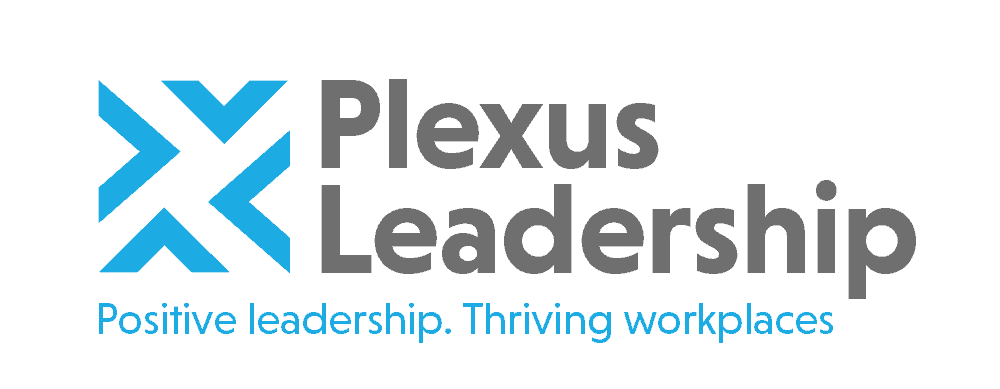The late Peter Drucker, often referred to as the “father of modern management”, claimed it was pointless to try to measure potential. However, many HR leaders and business psychologists confidently claim that they can accurately spot high potential leaders. So, what exactly is potential and can it be accurately measured?
Leadership potential is the future performance a person is likely to achieve in a leadership role. It is a prediction of their future performance trajectory. And therein lies the major challenge – a person’s potential is dependent on a wide range of internal and external factors so measuring it is extremely difficult and prone to error. For example, factors such as life happiness, the availability of a mentor or sponsor, culture and team fit and changing personal and work motivations can be extremely unpredictable and affect a person’s potential.
Most organizations use very crude and unscientific methods to spot potential. Some still place a disproportionally high emphasis on educational factors, favouring those from top universities or people with an MBA when looking to hire or promote into leadership roles. However, education attainment and qualifications are generally an unreliable indicator of potential as we’ve seen from the many founders and leaders like Richard Branson who’ve bypassed university (or dropped out early) to pursue their entrepreneurial and/or leadership goals and achieved great success.
Many organizations have also adopted the well-known “9-Box Potential-Performance Grid” to allocate talent into categories based on managers’ evaluations of performance and potential, although many never define potential so measurement remains highly subjective and prone to all sorts of bias. Many companies also don’t stretch and develop people once they’ve been assigned a “high potential” rating so this never moves beyond a paper exercise and does little to help the business spot, develop and retain talent.
So, what can companies do to put in place a more robust process for discovering and developing leadership potential? We recommend the following 4 methods:
Proven track record of delivery
Although many senior executives still favour traditional leadership traits like assertion, charisma and an extraverted, decisive style when looking for future leaders, there is little evidence that these characteristics make good leaders. In fact, they can lead to the appointment of narcissistic and ego-driven leaders who achieve short-term results at the expense of long-term sustainable growth and retention of key talent.
A far more effective approach is to look out for consistent delivery and longer-term value creation amongst leadership hopefuls. It is often the quiet grafters who show a real passion for leading others that are more effective in senior roles rather than those who are focused on their own agenda and walk over others to get ahead.
To ensure more objective measurement of track record, companies must ensure regular performance check-ins and constructive feedback, as well as opportunities for leaders to come together to evaluate performance and potential using a systematic and rigorous process to share, discuss and align evaluations.
Work-based assessments
Despite exaggerated claims from some business psychologists, commonly used assessment methods (including personality and aptitude tests) are not a panacea as they are far less accurate in predicting future potential than in predicting performance in the shorter term.
However, research provides promising findings that personality factors like high conscientiousness/perseverance, openness to learning, resilience and emotional self-regulation do predict better leadership performance. Similarly, people who are able to think more analytically and strategically often perform better as leaders. Therefore, well-established personality and aptitude tests should remain an important part of our toolkit to measure the potential of future leaders as they add incremental validity to objective, well-structured interviews.
To strengthen testing and interviews, companies can also use work samples and simulations like role plays, analysis exercises, scenario challenges and strategy discussions that provide additional insight into how future leaders might handle the typical challenges and dilemmas of a leadership role.
Stretch assignments
This is one of the best ways to test potential as it is provides a potential leader with an opportunity to assume responsibility for challenging leadership tasks on a trial basis to see how they perform under pressure. However, in my experience, it is often underutilized as a way to test potential or poorly implemented. Common implementation problems include risk averse cultures and lack of adequate delegation by senior leaders, inadequate coaching and mentoring and poor design and application of criteria to evaluate performance resulting in subjectivity and bias.
Stretch projects can be team, as well as individually based. We usually favour the former as these enable potential leaders to work together to overcome real business dilemmas and challenges in a collaborative context, allowing HR and senior leaders to evaluate their team skills, including joint problem solving, influencing and emotional intelligence, as well as individual performance.
Peer feedback
When I was at school, our prefects and house captains were nominated by students and then approved by the head teacher. This practice continues in many schools today and for good reason, leaders are people who command the respect and trust of others they need to influence.
Although not a particularly scientific practice, a robust peer feedback approach should be included in the broad mix of approaches used by companies to assess potential for leadership roles. It can also be made more scientific by introducing a behaviourally-based 360-degree survey to see how potential leaders compare relative to their peers. Such surveys also provide valuable feedback to potential leaders about their strengths and potential weaker areas/blockers and ‘blind spots’ that might derail their progression.
It is, without doubt, extremely tough to accurately measure the potential of future leaders and any consultant who claims otherwise is misleading you. However, this doesn’t mean that it isn’t worth the investment to bring more rigour and science to the discovery and development of your future leaders. The quality of your leadership and management will ultimately determine the decisions your business makes and how successful it is financially and otherwise. By adopting the steps above, you can ensure your company is not merely going through a subjective, ‘tick box’ exercise of identifying high potentials, but ensuring a more robust and accurate process to improve the identification and readiness of future leaders.
Other Posts

About the Author
James Brook
Founder and MD | Leadership Consultant | Organizational Psychologist
James is a leadership consultant, organizational psychologist and executive coach. He has over 25 years’ experience working with leaders, teams and organizations globally to optimize their performance, talent and future success. He specializes in positive leadership, thriving workplaces, collaboration and influencing, organizational change and transformation, accelerating innovation and coaching executives and leaders in innovative sectors including Tech, Digital, E-commerce and Life Sciences.
Before setting up Plexus Leadership, James held leadership roles in HR and Talent Management in the UK and abroad with companies such as NatWest, Yahoo! and Novo Nordisk Pharmaceuticals. After this, he founded and led several talent and leadership consulting and assessment businesses, including Strengthscope®, an online strengths assessment and development business serving a wide range of UK and global clients. James grew this venture into a global market leader before selling the business in 2018.
James has supported, advised and coached leaders and teams globally across diverse industries and geographies. Clients he has worked with include Allen & Overy, Commvault, Equinor, Facebook, GSK, Hilton, John Lewis, Novartis Pharmaceuticals, NHS, Oracle, Sainsbury’s, Swiss Re, Tesco, Takeda Pharmaceuticals, WSP and Yahoo!.
James has a Master’s in Organizational Psychology, an MBA, an Advanced Diploma in Executive Coaching and a Harvard Business qualification in Sustainable Business Strategy. He is a member of the Institute of Directors, the Association of Business Psychologists and a Fellow of the Chartered Institute of Personnel and Development (FCIPD). He is currently undertaking a PhD in Organizational Psychology examining the start-up experiences of Tech and Digital entrepreneurs.
James is a regular contributor and speaker on leadership, coaching, innovative talent management and the future of work. His most recent book, Optimize Your Strengths, explores how leaders can create thriving workplaces by inspiring and supporting people to optimize their potential and teamwork to deliver breakthrough results.




